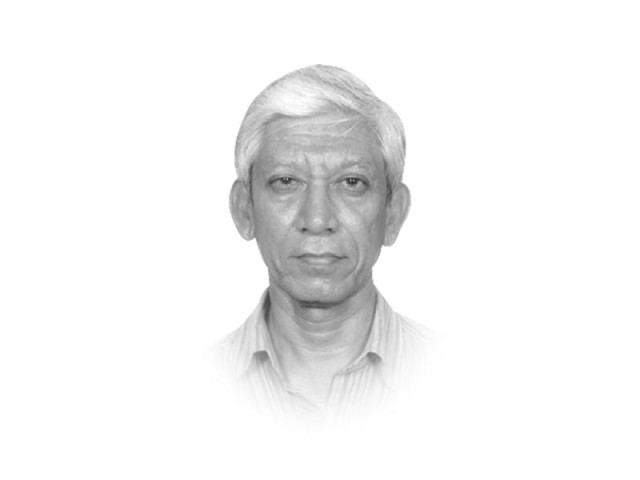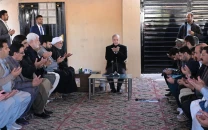More on the unpalatable Manto
Manto's story was edited per official policy to present Hindu-Muslim riots as a one-way affair, Muslims as victims.

More on the unpalatable Manto
This is not the place to dwell on the features of this law in detail. However, it is useful to quickly note a few things about the Act and its life. One, it was recognised for the first time that a diverse society such as the subcontinent could only work on the federal principle. It promised to bring into being a federation of India which was to include the areas under the direct British rule and the two-fifth of the country that was allowed to be run as ‘Princely States’ by a horde of small and big Nawabs, Maharajas and so on. However, since these states did not like to be ruled under a constitution, the promised could not come into being. Two, direct elections to state legislatures were introduced which enlarged the franchise from about seven million to some 35 million — propertied, salaried and/or educated — people. The elections of 1937 and 1946 that led to the Partition of the subcontinent were held under this very Act in which approximately 14 per cent privileged persons were allowed to vote — leaving out the remaining 86 per cent disenfranchised people who were never asked or allowed to express their opinion.
Third, the Act initially served as the constitution for the two new-born dominion states of India and Pakistan. India became a republic on January 26, 1950, two months after its constituent assembly adopted the Indian Constitution, drafted by a committee with the great Dalit ideologue and leader, and India’s first minister of law, Dr Bhimrao Ramji Ambedkar as its head. Pakistan, on the other hand, could get its first — and very short-lived — constitution in 1956, and the second one in 1973, with different Sipah-Salar-e-Azams one after the other (mis)ruling it and mutilating its constitution under martial law. It can be argued that the Islamic Republic chose to govern itself on the lines of a princely state, but about that some other time.
Let’s return to Manto’s story which must have been written some time in the later half of 1930s, i.e., after the ‘naya qanoon’ of 1935 came into force. The story, with Mangu Kochvan as its protagonist, is a patently sharp, incisive comment on the cold, inhuman processes of lawmaking and law-enforcing that have no respect or consideration for the lives of the common, marginalised, disenfranchised human beings. Written during the colonial era, the story by the great master of Urdu fiction seems no less relevant today. Mangu used to listen to the conversations of people who travelled in his tanga and tried to piece them together to make sense of the changing world around him, equipped with nothing more than a curious and impatient mind which had been denied the basic tool for understanding it: education.
I reproduce below — in italics — the portions of ‘Naya Qanoon’ that the great, respectable (and, no doubt, highly educated) minds manning the editorial committees dutifully serving the Sindh Textbook Board thought it necessary to delete from it texts, followed by my own comments as an attempt to understand the above-mentioned minds. I am using Khalid Hasan’s translation of the story, which appeared under the title “The New Constitution” in Kingdom’s End and Other Stories,” (Verso, 1987, pp. 83–92).
“One day he [Mangu] overheard a couple of his fares discussing yet another outbreak of communal violence between Hindus and Muslims.
“That evening when he returned to the adda, he looked perturbed. He sat down with his friends, took a long drag on the hookah, removed his khaki turban and said in a worried voice: “It is no doubt the result of a holy man’s curse that Hindus and Muslims keep slashing each other up every other day. I have heard it said by one of my elders that Akbar Badshah once showed disrespect to a saint, who cursed him in these words: ‘Get out of my sight! And, yes, your Hindustan will always be plagued by riots and disorder.’ And you can see for yourselves. Ever since the end of Akbar’s raj, what else has India known but riots!”
The entire second paragraph has been expunged. This is in line with the official policy to present the Hindu-Muslim riots in the erstwhile united India as a one-way affair and the Muslims as innocent victims and never as equal, or equally enthusiastic, partners in the game of riots.
Published in The Express Tribune, February 25th, 2012.



















COMMENTS
Comments are moderated and generally will be posted if they are on-topic and not abusive.
For more information, please see our Comments FAQ